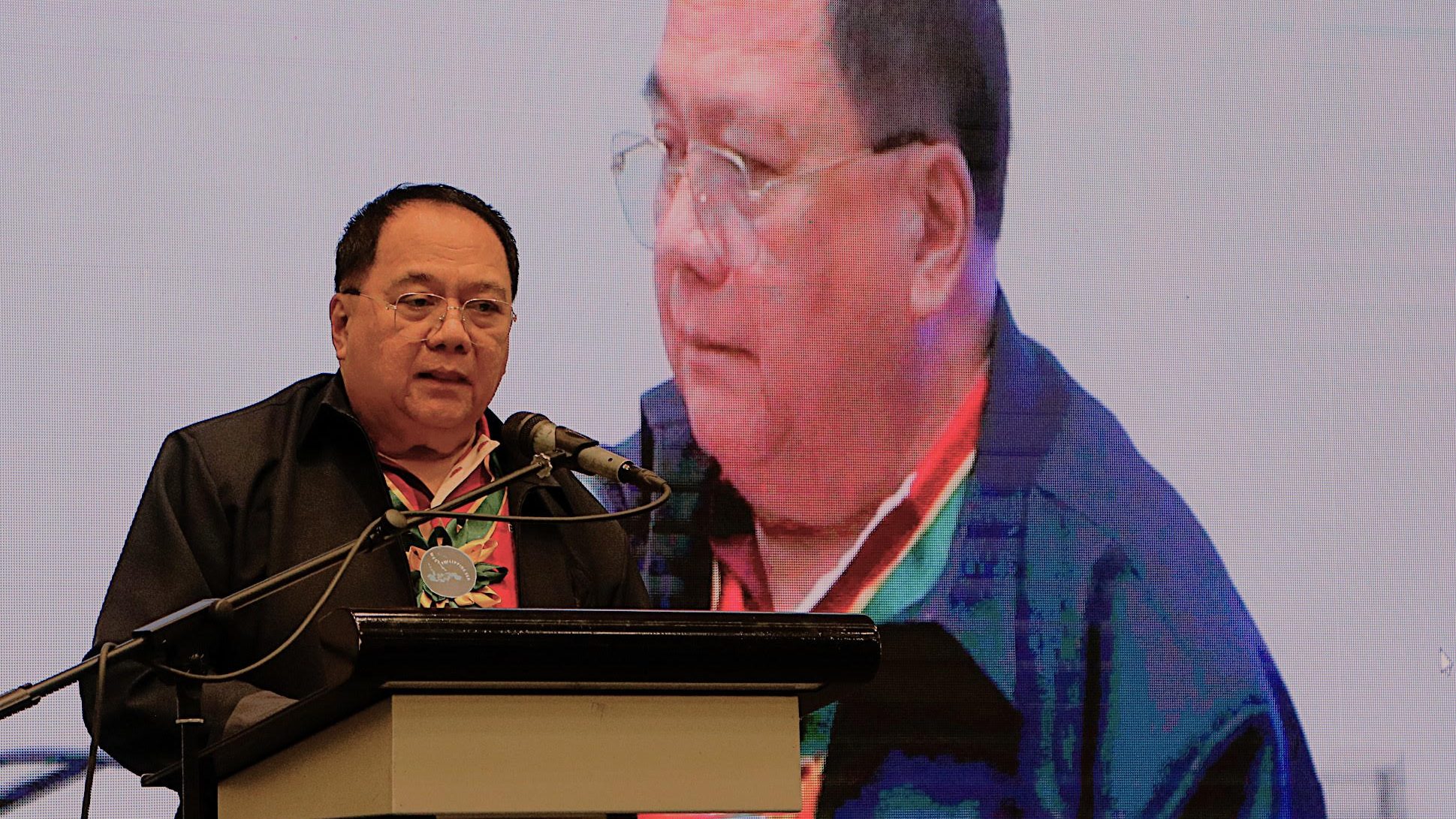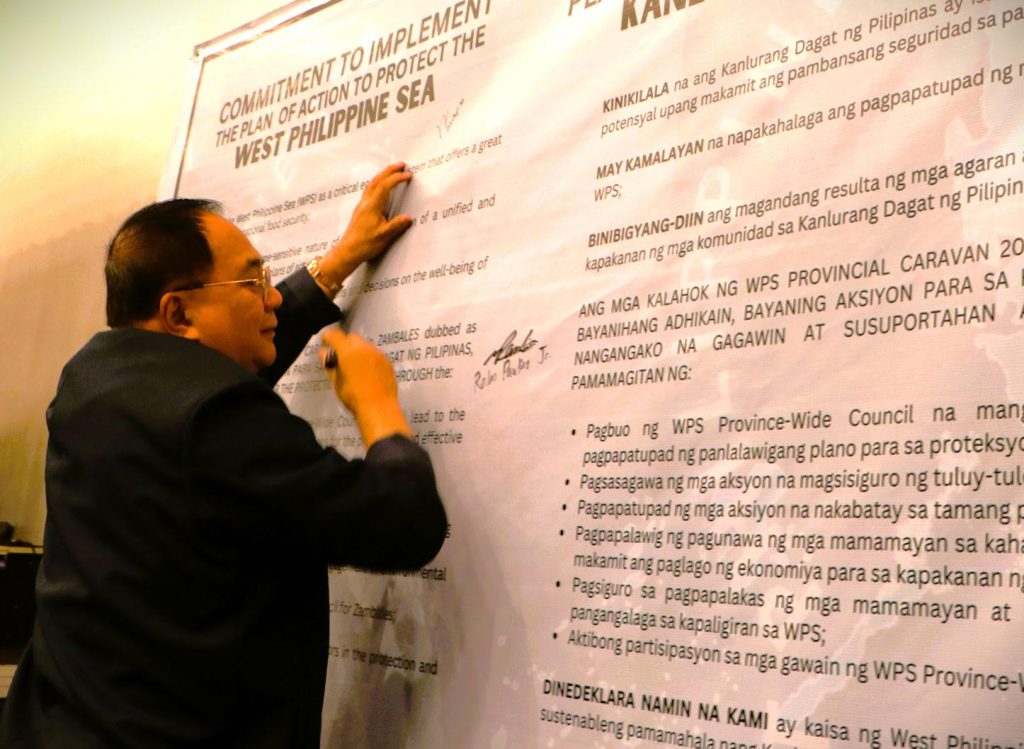
Organizing cooperative clusters among fisherfolk and empowering them to develop sustainable fishing methods constitute the main strategies of the Zambales government in response to geopolitical issues in the West Philippines Sea (WPS) that affect local fishermen.
This was stressed by Governor Hermogenes Ebdane Jr. in his message at the Provincial Caravan for WPS held on Oct. 22 at the SMX Convention Center in Olongapo City.

The caravan, which was led by the Department of Interior and Local Government (DILG) in coordination with local government units and national government agencies concerned with the WPS issue, sought to popularize, validate, enhance, implement, and institutionalize the provincial action plans formulated last year by 10 provinces adjoining the WPS.
In his message, Ebdane urged immediate action on the problems confronting some 27,000 fishermen in Zambales who consider the WPS their traditional fishing ground.

“Specifically, for Zambales, we always have this problem because whenever it rains for three to four consecutive days, we already have to prepare ‘ayuda’ for our fishermen,” the governor said.
“But we cannot do this in perpetuity. So, we have set up funds and begun to think of long-term requirements and programs.”
He said that for this purpose, the provincial government is organizing fisherfolk into cooperative clusters for deep-sea fishers, those involved in baklad or payao fishing, and other means of marine livelihood. Each cluster would get funds for them to upgrade their fishing skills and capacity, he added.
Ebdane also announced the establishment of the Zambales Maritime Development Council (ZMDC) to oversee, supervise, and manage the cooperatives for fisherfolk. The body has representatives from fisherfolk and community organizations in the province, as well as concerned government agencies.
He also bared the initial allocation of P5 million for the purchase of 45 sets of payao gears, and the ongoing talks with the Philippine Merchant Marine Academy (PMMA) for short training courses on modern fishing, with the long-term view of acquiring a ship for local commercial fishing operations.
In the future, the governor added, his administration will need to create the Zambales Development Corporation to further support fishermen, farmers, mango growers, and small businessmen in boosting livelihood.
“While considering tactical approaches, we must think forward to the operational and strategic requirements of the action plan,” Ebdane pointed out during the caravan.
“We can plan out anything we want, but while planning, time is running out fast. So, we have to do it now. We have to act because we have the opportunity now,” he said.
In the same occasion, DILG Zambales Provincial Director Martin Porres Moral outlined the seven activities under action plan developed from the national summit on the WPS in August 2023.
These include coastal cleanup with hotel owners and barangays; delineation of municipal water boundaries to prevent the entry of large commercial vessels; implementation of zoning ordinances; re-activation of Zambales MPA network to address illegal, unreported and unregulated (IUU) fishing; strengthening Bantay Dagat through increased support; slope protection through mangrove planting, tree planting, and reforestation to address siltation; and creation of a technical working group (TWG) to assess and address the issue of informal settlers along the coast.
The caravan was supported by Tanggol Kalikasan’s project, “Restoring the Resources for Economic Sustainability of the West Philippine Sea (RESTORE-WPS),” under the program of the United States Agency for International Development (USAID) through the Gerry Roxas Foundation.




